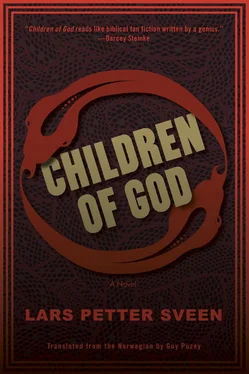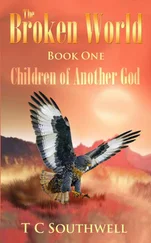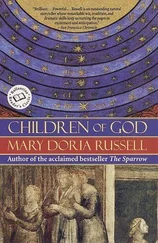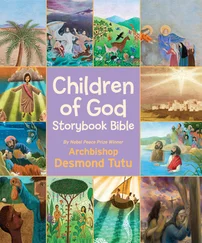“Show me,” he said.
“So, you know where it is,” the man said to me. “Tell me, I can pay you well.”
I had my hands under the cloth that was wrapped around me.
“Well, are you going to say something?” the man asked. “Is he mute?”
I walked closer.
“What’s this, can’t you hear me?” the man said.
I pushed the knife into him. I cut him and felt him tear, felt all the warmth and wetness gushing out as he tried to say something, I couldn’t hear what. I pulled out the knife, but he was still standing there.
“Finish it,” said Jehoash, so I took hold of the man, turned him around, pulled his head back, cut his throat, and let him fall to the ground.
Jehoash came up, looked down at him lying there, looked at me, and said, “Good, you’re one of us.”
Jehoash and Reuben went into the dead man’s house and took everything they could find that was worth taking. We left together, through Hebron, following the road up toward Bethlehem. When daylight began to spread, we lay down to rest.
We walked at night, slept during the day. I got used to the dark, it became part of me. I was able to walk without falling, without stubbing my toes. I saw things I’d never seen before, creatures I didn’t know existed, and the faint but sharp light of the moon.
When we’d come as far as Sychar, Jehoash said it was time for some rest. He found a house for us to stay in. Reuben was away for several days.
I lay awake at night in Sychar. When my eyes closed, it was as if I were blinded. I tried to lie outside in the open air, by the wall of the house. I took a rug and a blanket. Jehoram smirked at me, but one night, while I stared up into the sky, I saw a flashing light. First it flashed red, then green, and it was moving. Soon it had crossed the whole black arc of sky I lay under. I didn’t tell the others about it. When morning came, I went inside and lay down. I didn’t wake up until darkness fell again that evening.
We traveled onward, back and forth, through Samaria, through Judea. Jehoash wanted to go to the coast, but Reuben didn’t want to go there yet; he wanted to wait until it became warmer. They argued. We came across soldiers, but Jehoash showed them Jehoram and told them we were going to have our brother treated. They let us go, and Jehoash cursed and swore, saying that we had to be careful, we wouldn’t get away so lightly next time.
One day, when we stayed at our campsite, Jehoram told me that he’d heard of a prophet who said he was the son of God.
“Imagine that,” he said. “The son of God. Imagine how well he’s hung.” He grinned, his teeth as dark as gravel.
That was the first time. The second time was when Jehoash told us about a woman who wouldn’t shut up at him. He’d finished and paid her, but she kept on speaking, and he asked her what she was talking about, and she said he wasn’t listening.
“Well, that’s right,” Jehoash told her, “but what are you talking about?”
The woman told him she was talking about somebody who’d touched her, who had God in his fingers and God in his eyes and God in his long hair. Jehoram started laughing and asked Jehoash how hard he’d taken her.
The third time was everything that happened afterward, from when we were caught in a storm until I met Martha.
It was too late when we realized what was coming; we’d been walking in the dark and hadn’t paid heed to the signs.
Clouds took away the sky and the light, a wind blowing so hard over us that Jehoram started screaming and whimpering, and Jehoash shouted: “What’s wrong? What’s wrong?” Reuben stood there, tugging at Jehoram and yelling at him.
Jehoash took hold of me and said, “Come on, we’ve got to get away from here.”
I stayed close to him; we ran down a cleft in the terrain that lay there open beneath us. Jehoash turned around and looked at me, his eyes wild.
“Are we all here?” he said.
Before I could answer, Jehoram had pushed me forward, and another gust of wind made me stumble. I was about to fall over the edge, but Jehoash grabbed my hand and pulled me up.
“Come on,” he said. “Don’t stop, just keep up with me.”
It began to rain, big, heavy drops, I’ve never seen such rain. It hit us like gravel, and it was hard to keep our eyes open. Jehoash called to us. I saw his back for a moment, then he was gone, then he was suddenly in front of me again. How long we walked like that I have no idea. We were underwater, walking over the bottom of the sea, a billowing darkness crushing us.
Jehoash must have stumbled upon the stable by some kind of miracle. He pulled us all in there. We fell to the ground, spat, tried to catch our breath and pull off our clothes all at the same time. Jehoram was bleeding. Jehoash knelt down over him, asking him to get up, telling him they had to clean his wounds. But neither of them had the strength to contradict or obey the other, they just sat there like that, naked in the hay. Reuben tried to take out everything he was carrying. It had to be dried, the water would ruin everything, he said, but then he gave up and lay down on his back, coughing and swearing. I fumbled about, found a spot in the hay next to Jehoram, and lay down.
When we came around and a faint light shone through the opening, Jehoash got up and said we had to get dressed.
“This is somebody’s stable,” he said. “We can’t lie here like this.”
We did as he said, shuffled over to the door, and stared out.
The sky was torn, and there was water everywhere. We were at the bottom of a valley, and streams were crisscrossing the fresh, green fields surrounding the stable. I’d never seen anything like it, and I had no idea where we were. Birds flew above us, large beasts were staggering about, lowing, and a boat stood propped up against an enormous tree root.
“Who are you, and what brings you here?” came the voice of a man heading over toward us. He was tall, with his beard and hair braided together. He clapped his hands and called to the animals, then he asked us again. Jehoash coughed and said we’d got lost in the storm.
“Yes,” said the man. “It looks like you were washed ashore by a great wave. What else can I say? Come with me, we’ve got to get you inside, you must be hungry. I’m the head of the family here, and those clothes need to be dried. You look like fish out of water.”
We followed him across the fields and over to a house made of clay and stone. He told us to come in and said we could take our clothes off to dry. His wife and children wouldn’t be home yet; they were out with the animals. Jehoash asked where we were, and the man said he could show us the way back.
“That won’t be a problem, I can take you. But you need to rest and dry off. How about something to eat? You must be hungry after a night like that.”
He served us lentil soup with bread. We sat there eating, naked, while our clothes dried by the fireplace. None of us said much; we listened to his voice and everything he told us. He told us the strangest stories about the place where we were, the animals he tended to, how the weather could be as hard to interpret as signs from God. The weather had whipped and lashed me in the storm, but here, by the fireplace, it felt as if my skin, my hair, and my beard had been oiled and were soft again. The man gave Jehoram some rags to put on his wounds but said he didn’t need to dress them.
“There’s good air here, and a blessed light, it’s good for you to let everything rest in the sight of the Lord.” Jehoash was about to say something, but the man cut him off. “You’re his elder brother, aren’t you? Keeping watch over your brother, like all of us. The blood of our brothers calls to us from the earth, can you hear it?”
Читать дальше











